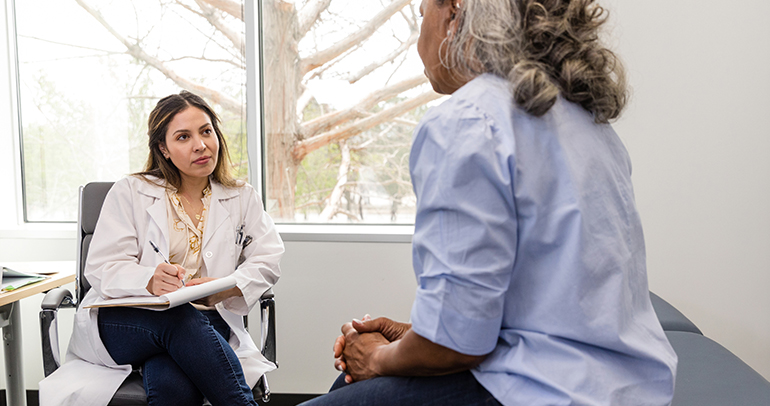
With growing concerns for the outbreak of a novel respiratory disease (officially named Coronavirus Disease 2019 and abbreviated COVID-19), many global industries are finding their typical operations disrupted—including market research.
Having circled the globe multiple times in the last year to conduct qualitative research in Europe and Asia, and having caught my fair share of illnesses while traveling (including the infamous H1N1, or “swine flu” back in 2010), it is easy to understand why tensions are high as the world seeks to fully understand the risks of a novel disease. As more cases of COVID-19 are confirmed, there is increased attention on how organizations can work to control the spread of the disease.
Patients First
Our health division interviews thousands of patients each year as we conduct research around the world. In many cases, we are privileged to meet with patients in-person, as we conduct ethnographies in their homes or invite them to research facilities to tell their stories and discuss their needs. Many of these patients are among the most vulnerable to viral and respiratory infections, as either their disease or their treatments may cause them to be immune-compromised.
With the emergence of COVID-19, our health team at Escalent converged to discuss the key needs and priorities for how we would handle the developing travel restrictions and fielding challenges that would emerge if the situation escalated. The priority for every team member was simple and unanimous: We will not put patients at risk. There is no research objective that outweighs patients’ safety.
In collaboration with our clients, we are taking action to limit the need for patients to travel (even locally) for in-person qualitative research, and even limiting in-person health care provider (HCP) research to reduce unnecessary exposure for providers that may serve these at-risk populations.
Solving the Problem
The fact remains that as this outbreak continues, there are still chronic and life-threatening illnesses that also need life-changing therapies—which our healthcare clients are working tirelessly to develop and provide. Therefore, research needs still exist—but we must adapt our approaches in response to the emerging challenges.
- Leveraging Qual Technology: While not every country and market has fully adopted the use of webcam interviews or online boards for healthcare research, these circumstances present a unique opportunity to demonstrate their value and explore larger-scale feasibility. We are currently transitioning projects planned for in-person research to a combination of online discussion boards and webcam interviews, and working with our international partners to recruit appropriately, educate respondents and refine our engagement strategies to maximize completions.
- Evolving the Debrief: For our client teams that thrive through live, backroom discussion, it is difficult to imagine the same immersion in global research without the “boots on the ground” element. We’ve opted to take many of the same engagement strategies that keep our remote teams connected and use them to help our clients stay connected to the research. From simple tactics like carefully scheduled calls (to address conflicting time zones) to creative options like using asynchronous online boards (to allow teams to post questions, collaborate on stimuli updates and share their learning), we are working closely with our client teams, translators and international moderators to bring global research home.
In countries where restrictions have not yet impeded travel and are not yet facing confirmed cases, we are still conducting in-person qualitative research that has been scheduled. For any in-person research conducted during this outbreak (regardless of industry or audience), we are asking our research facility partners to commit to the following:
- Screen patients and visitors for symptoms of acute respiratory illness (e.g., fever, cough, difficulty breathing) before entering the facility—for example, when contacting patients to remind them of their appointment, or upon arrival
- Offering tele-web interviews with flexible hours and availability to any patients who are not comfortable coming in, may have been exposed, or report experiencing symptoms
- Elevating the degree of cleaning and sanitization of all interview rooms, waiting areas, backrooms, restrooms and public areas
- Encouraging sick employees to stay home, particularly those who develop respiratory symptoms
Moving Forward
We are steadfast in our hope that global health organizations, governments and healthcare industries can collaborate to address this virus and prevent further illness and loss. The research industry has encountered and dealt with many crises over the years that have impeded travel, such as natural disasters, political upheaval and international conflict. And, while time lines may shift, we always find a way to gather the insights needed to drive critical decision-making for our clients.
However, COVID-19 raises an important reminder for the healthcare research industry specifically. We, alongside our clients, are committed to patient centricity and keeping patients’ needs at the forefront of our thinking. While qualitative research helps us to deeply understand patients’ lives, we must ensure that our research design, practices and logistics always serve the patients first. On the average day, this is important out of respect for their time and effort—but in the midst of a health crisis, it is essential for their safety and well-being.
Send us a note if you would like to discuss how to keep your global research moving amid these challenges, and leverage our creative strategies for fielding and engagement.









